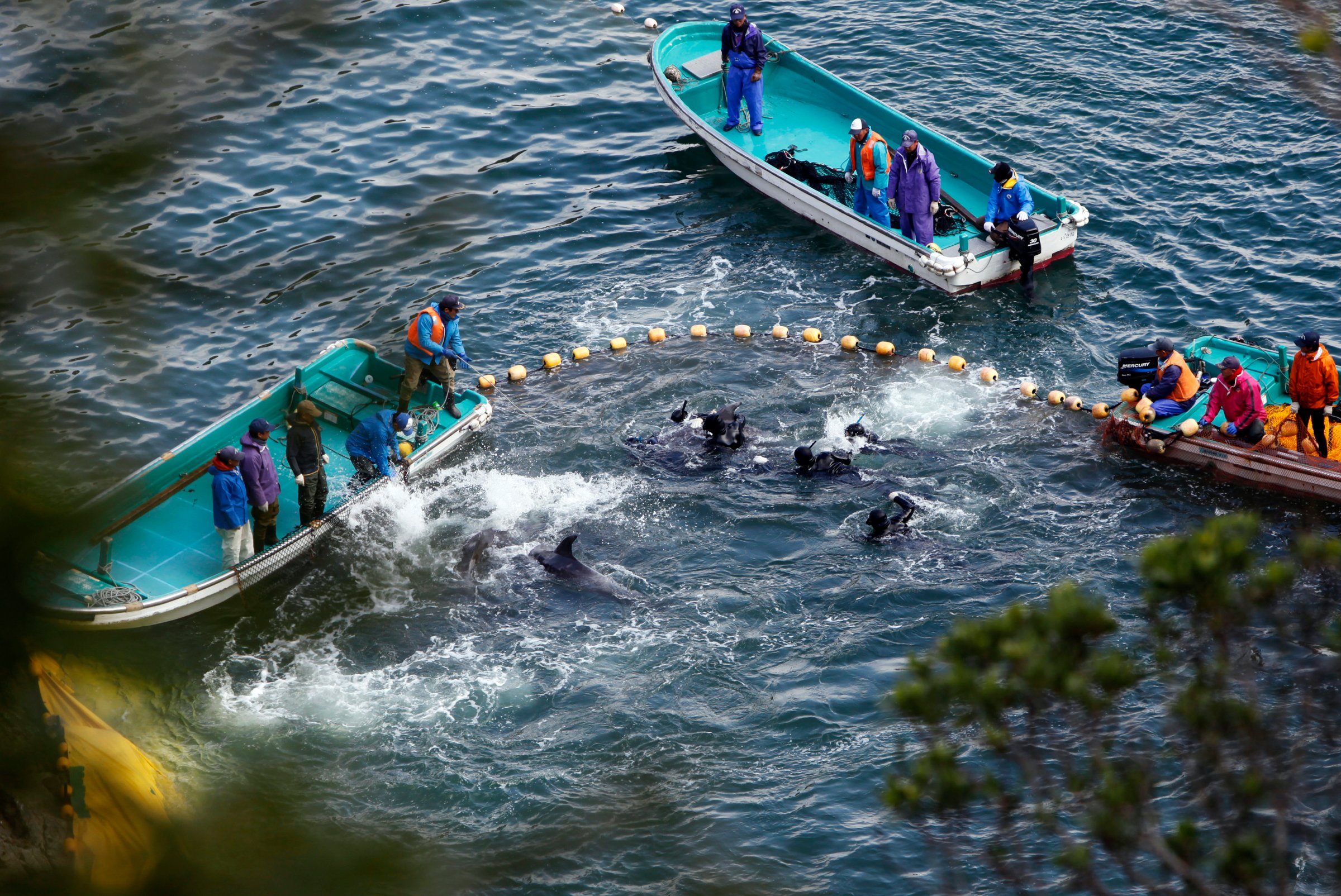
The Japanese coastal village of Taiji has begun its annual dolphin hunt again this month, CNN reports.
The hunt, which runs from September to March, has long been the focus of outrage among environmental activists and was even made into an Oscar-winning documentary in 2009 called The Cove.
However, locals in Taiji, a town in Wakayama prefecture with a population of 3,500, say that hunting dolphins and whales is crucial to the region’s economy.
They appear to have the support of the Wakayama prefectural government, which declined CNN’s request for an interview but referred them to a statement on its website that calls dolphins and whales a legitimate marine resource.
“Located far away from the centers of economic activity, the town has a 400-year history as the cradle of whaling, and has flourished over the years thanks to whaling and the dolphin fishery,” the statement says.
Environmental organizations like Sea Shepherd, which has been broadcasting a live feed of the hunts for the past five years and running a robust social-media campaign against them, say the dolphins are tortured and treated inhumanely before they are killed.
The dolphins are captured and killed using a method known as “drive hunting,” which involves boatmen banging metal poles to cause deafness and disorientation in the dolphins, who then swim away from the boats and straight into the killing cove.
“Once netted into the cove, the dolphins are literally wrangled and tethered, often sustaining bloody wounds … The dolphin hunters use large metal rods to penetrate the spinal cord,” said Melissa Sehgal, Sea Shepherd’s campaign coordinator for the Taiji project.
Sehgal said the dolphins do not die immediately but are left to bleed out or drown in their own blood, a practice she described as “barbaric.”
Although most of the marine mammals are killed and sold for meat, a few choice specimens are captured. Captive dolphins can reportedly fetch over $100,000 from aquariums.
Sea Shepherd estimates that over the past three hunting seasons, there have been nearly 2,600 dolphins killed and a little under 500 taken captive.
[CNN]
More Must-Reads From TIME
- The 100 Most Influential People of 2024
- Coco Gauff Is Playing for Herself Now
- Scenes From Pro-Palestinian Encampments Across U.S. Universities
- 6 Compliments That Land Every Time
- If You're Dating Right Now , You're Brave: Column
- The AI That Could Heal a Divided Internet
- Fallout Is a Brilliant Model for the Future of Video Game Adaptations
- Want Weekly Recs on What to Watch, Read, and More? Sign Up for Worth Your Time
Write to Rishi Iyengar at rishi.iyengar@timeasia.com